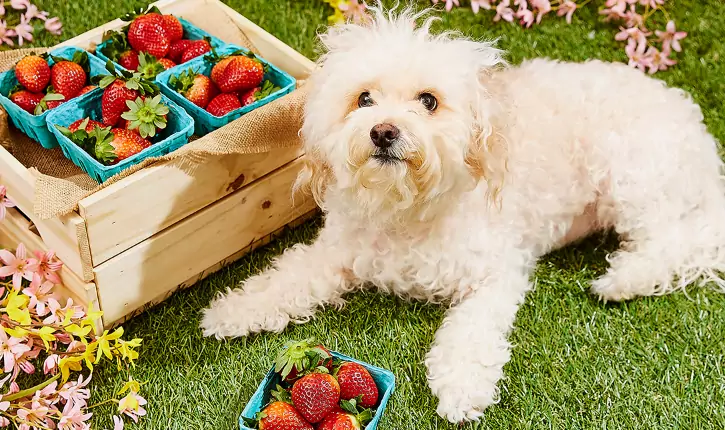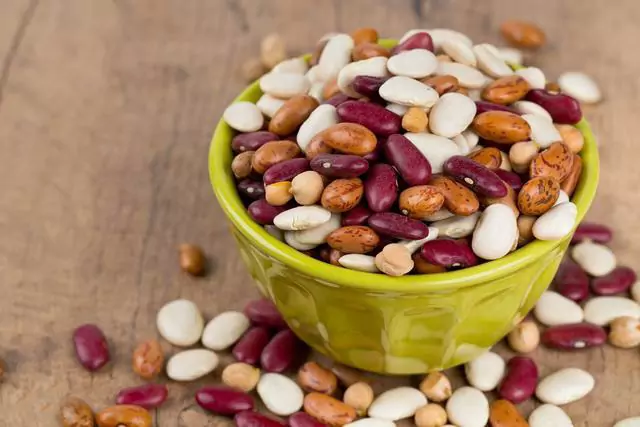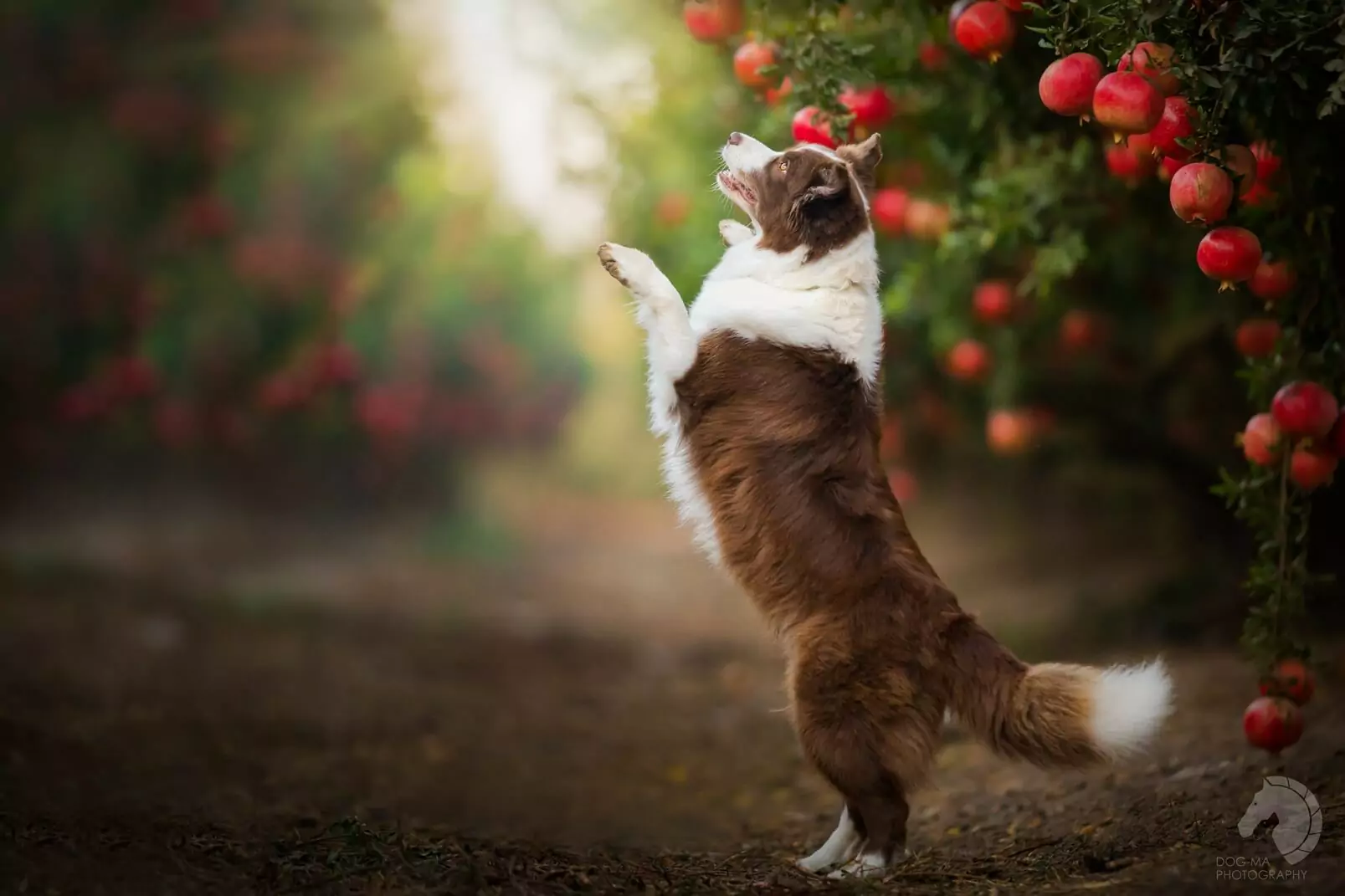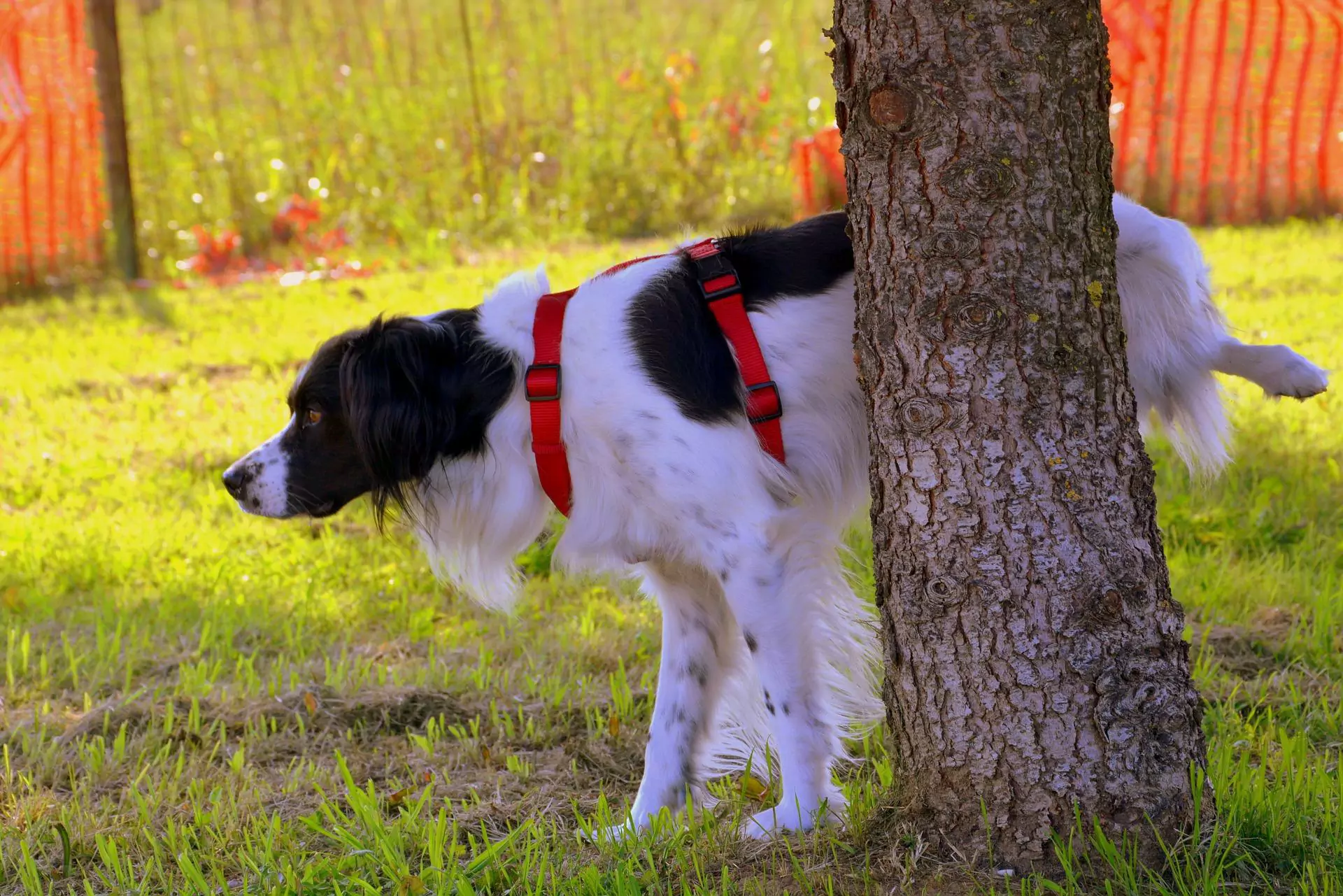What fruits are ok for dogs to eat?
2022-07-01
Which fruits are okay for dogs to eat
We know that fruit is important for maintaining good health, but did you know that fruit is also good for your dog? While fruit is not a required diet to get your dog to their healthiest state, adding fresh fruit to your dog's daily diet with your veterinarian's permission and guidance can provide them with additional vitamins, minerals and antioxidants, as well as some always welcome extra hydration.
However, one important thing to remember when you're feeding your dog fruit is that while many fruits are good for dogs, not all of them are.
In addition to looking at our list for you of fruits that you should not feed your dog, you should also be aware of how your dog reacts to certain fruits. If you notice that he has an upset stomach or other signs of discomfort, then don't give them that fruit again for a long time, even if it's theoretically safe for him.

1. Apples
An apple a day probably won't keep the vet away, but a small slice or piece can be a great snack reward and pre-dinner garnish.
Remember to always remove the seeds and feed them to your dog, though, as they contain small amounts of cyanide and a choking hazard.
Benefits of apples :
Helps clean teeth and freshen breath.
Contains vitamin A, vitamin C and fiber. There are also phytochemicals in the skin of apples that have been found to fight the growth of cancer cells.
2. Bananas
Bananas have many health benefits for our fur kids.
They are also inherently portable, making them a great snack for both of you to share on long walks.
Benefits of Bananas:
Bananas are good for your dog's digestion, and good for their heart and muscles.
They contain high amounts of potassium, fiber and vitamin C. 3.
3. Blackberries
It's safe to share blackberries with your dog, but you're better off cutting them into smaller pieces.
Stick to sweeter blackberries rather than the tart ones your dog prefers.
Benefits of blackberries:
Has antibacterial properties to maintain good oral health.
Contains vitamin C, K, manganese and fiber.
4. Blueberries
Dogs tend to like blueberries because they are already the perfect size for big and small mouths to eat.
If you're dealing with a small dog or a large blueberry, cut the blueberry in half before eating.
Benefits of blueberries:
Low sugar makes blueberries a good food for diabetic dogs.
Contains vitamins C and K, as well as calcium, magnesium, zinc, iron and antioxidants.
5. Cantaloupe
Cantaloupe is a safe and healthy fruit for your dog to enjoy, but do not feed the rind as the roughness of the rind may cause intestinal damage.
Benefits of cantaloupe:
High dose of beta carotene, good for your dog's eyesight and immune system.
Contains vitamins A, B-6 and C, as well as fiber, potassium, folic acid and niacin.
6. Cranberries
Cranberries can be eaten raw, cooked, or air-dried, but do not eat sugary cranberry sauce.
Benefits of cranberries:
Good for bladder health, gum health and immune health.
Contains vitamins C and E, as well as a range of B vitamins including thiamin, niacin, riboflavin and B-6.
7. Papaya
Go ahead and feed your puppy papaya. The flesh of this exotic fruit makes an excellent snack, as long as you don't feed it the skin and seeds.
Benefits of papaya:
Has many benefits for the body, from heart health to immune health, from eye health to digestive health.
Contains vitamins A, C, E, and K, as well as folic acid, fiber, calcium, and potassium. 8.
8. Raspberries
Raspberries are a delicious treat for dogs in moderation. Most dogs seem to love them, especially in the summer when they are at their sweetest.
Benefits of raspberries:
Helps fight cancer, circulatory disease and age-related decline.
Contains vitamin C, folic acid, copper, magnesium, fiber and antioxidants.
9. Strawberries
Like most other berries, strawberries are rich in antioxidants. For safe feeding, cut the leaves off the top of the strawberry first and then divide the strawberry into quarters.
Benefits of strawberries:
Powerfully promotes a healthy immune system, helps regulate blood sugar, and acts as a natural anti-inflammatory agent.
Contains vitamins C, B-6, K and E, as well as folic acid, potassium and manganese.
10. Watermelon
There's nothing more satisfying than a juicy slice of watermelon on a hot day, and our dogs feel the same way. But don't feed your dog watermelon rind and seeds; they are hard for dogs to digest.
Benefits of watermelon:
Rich in lycopene, which is an antioxidant that protects cells from damage.
Contains vitamins A, B-6, and C, as well as thiamin, which helps convert fat, protein, and carbohydrates into energy.
Very hydrating due to its high water content.
What fruits can dogs eat? Those fruits are safe for dogs
Dogs are omnivorous, meaning they need to consume a balance of plant and animal materials to be healthy.
Dogs can eat some fruits, but some fruits are toxic to dogs, such as grapes and raisins. High-quality, well-rounded dog food has balanced nutrition, so there is no need to add fruit to your dog's diet, but it can be fun to use them as a snack.銆€銆€Before feeding any fruit to your dog, it is important to know which fruits are safe and to know if your pet has any lingering health conditions, for example, fruit should not be fed to dogs with obesity, diabetes, bladder stones and other diseases.銆€銆€So, can a dog eat blueberries or strawberries if there are no lingering disease issues? Can dogs eat watermelon? Are bananas toxic to dogs?
I. Can dogs eat blueberries?銆€銆€Yes, dogs can eat blueberries.銆€銆€Blueberries are low in calories and contain vitamin C, fiber, antioxidants and phytochemicals (which have been found to help fight cancer in humans). Blueberries have been shown to improve night vision, help prevent cell damage, and help with mental function in aging animals.
Second, can dogs eat strawberries?銆€銆€Dogs can eat strawberries.銆€銆€Strawberries are a good source of vitamin C, potassium, fiber and antioxidants. Strawberries can also help strengthen the immune system. They should be cut into small pieces to avoid blockages, or they can be mashed or pureed to feed smaller dogs.
Third, can dogs eat watermelon?銆€銆€Dogs can eat watermelon. But before giving your dog the fruit, remove the rind and seeds (even the light-colored seeds in a seedless watermelon) as they can cause choking or intestinal obstruction.銆€銆€Watermelon is 92% water, so it is perfect in hot weather. It will help keep your dog hydrated and refreshed. Watermelon is also a good source of vitamins A, B6 and C as well as potassium.
Fourth, are bananas toxic to dogs?銆€銆€Bananas are non-toxic to dogs. Although dogs can eat bananas, they should not be given banana peels because they are difficult to digest and can cause intestinal obstruction.銆€銆€Bananas are high in fiber, potassium and vitamins B6 and C. However, bananas also have more sugar than dogs. However, bananas also have higher levels of sugar than many other fruits, so they should be used with caution. It should be cut into small, bite-sized pieces.
V. Can dogs eat other berries?銆€銆€Dogs can eat raspberries, cranberries and blackberries in moderation.銆€銆€The berries are rich in antioxidants and phytochemicals, while low in sugar and calories.銆€銆€Blackberries and raspberries contain small amounts of natural xylitol. This is a sweetener that is used in many low-sugar foods and is highly toxic to dogs. Therefore, blackberries, and especially raspberries, should be used only in small amounts.銆€銆€Do not feed your dog wild berries, as they are easily misidentified and many are toxic to dogs.
VI. Other fruits that are safe for dogs These fruits can be eaten by your dog in moderation as long as you remove the seeds, skins or cores.銆€銆€Apples (seeded and cored) Cucumbers Oranges (can cause gastrointestinal upset if consumed in excess) Mangoes (peeled) Peaches Pears Pineapples
Seven, fruits that may be unsafe for dogs Avocados: Although the actual flesh is not toxic to dogs, the skin can cause intestinal obstruction, and the high fat content may even cause pancreatitis or stomach discomfort in some dogs.銆€銆€Tomatoes: The ripe fruit is not toxic to dogs, but eating too much can cause stomach upset. Eating parts of the tomato plant itself can also cause gastrointestinal discomfort in dogs.
Eight: Fruits that are not safe for dogs Avoid giving dogs these fruits that are toxic to dogs.銆€銆€Cherries Grapes/raisins Wild berries
Nine, can dogs eat snacks?銆€銆€Dogs should not eat fruit snacks. Although fruit snacks are not considered toxic to dogs, they are high in sugar and should therefore be avoided.
Ten, how much fruit can dogs eat?銆€銆€Snacks should be no more than 10% of the dog's food, and this applies to fruit as well. If you add fruit to your dog's food in addition to other dog treats, be sure to adjust the amount of treats given so that it does not exceed the recommended 10%.
XI. How to prepare fruit safely for your dog As with all produce, fruit should be thoroughly washed before feeding it to your dog. All fruit classified as safe for food can be fresh or frozen. Never use canned fruit with high sugar content in syrup.銆€銆€Fruit can be eaten on its own or added to your dog's food. As with any other treat, fruit can pose a choking hazard to puppies, so please take care when eating your dog.
Twelve, watch out for flatulence, vomiting or diarrhea Some dogs are more sensitive than others and may develop gastrointestinal gas, vomiting or diarrhea if they are given fruit. Even dogs with "steel bellies" can suffer from gastrointestinal discomfort, such as vomiting and diarrhea, if they consume too much fruit due to its high fiber content.銆€銆€If you want to safely give your dog treats, start gradually and watch for signs of gastrointestinal distress before making them a regular treat.銆€銆€If you do notice any of the signs of gastrointestinal distress listed above, stop feeding your dog any fruit and call your veterinarian.
XIII. What other foods are safe for dogs?銆€銆€Your dog can also safely enjoy the following foods: asparagus, persimmon peppers, broccoli, kale, cantaloupe, radishes, celery, green beans, peanut butter (try to avoid xylitol peanut butter, which is toxic to dogs; choose "sugar-free" or "low-sugar") peas, pumpkin (canned pure pumpkin, not pumpkin pie mix) (not pumpkin pie mix) rice (regular rice) sweet potatoes summer pumpkin
XIV. What foods are not safe for dogs?銆€銆€Do not give your dog these foods: Alcohol Dough Caffeine Chocolate Citrus peels/oils Garlic Macadamia nuts Milk/dairy products Mushrooms Nuts Onions Raw/undercooked meat, eggs and bones Salty foods Xylitol (artificial sweetener)
Was this article helpful to you?
Other links in this article
English:
What fruits are ok for dogs to eat?
español :
Qué frutas pueden comer los perros?
Nederlands:
Welke vruchten mogen honden eten?
Português:
Que frutos podem ser comidos pelos cães?
português (Brasil):
Que frutas são boas para os cães comerem?
русский:
Какие фрукты можно есть собакам?
日本語:
犬が食べても大丈夫な果物は?
中文简体:
哪些水果是狗狗可以吃的?
中文繁体:
哪些水果是狗狗可以吃的?
Comments

Is a dog's mouth cleaner than a human's? Dogs' mouths need regular cleaning

Can dogs eat beans? Do dogs eat beans for health?

Can dogs eat lemons? Fruits that dogs should not eat more of

Do dogs have nightmares? Are dogs' dreams similar to humans'?

Can dogs eat raw beef? The benefits and drawbacks of beef for dogs

Is raw meat good for dogs? Can dogs eat raw chicken?

Can dogs eat pomegranates?

Can dogs eat ham?Can all types of ham hocks be eaten?

How to give a dog a bath

Can dogs eat kimchi?










